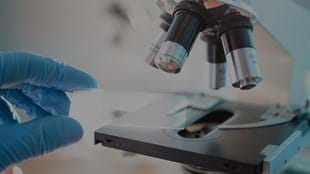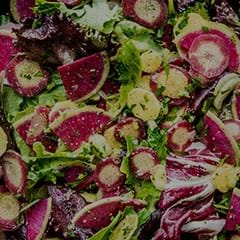It’s estimated that the human digestive tract contains about 100 trillion bacteria, viruses, fungi and related microbes. The modern probiotics industry – worth about $40 billion annually – claims its products can improve the health of the gut microbiome, which is an incredibly complex ecosystem that we still don’t properly understand.
So what should we believe, and what do we still need to know? Roger Lentle, Professor of Digestive Biomechanics and lead researcher with the Digesta Group, is an acknowledged world leader in the study of how the gastrointestinal tract works. In this fascinating interview he explains the complex science of the human gut and offers common sense advice about how to look after yours.
Below is an edited transcript of some higlights from the interview.
What exactly are probiotics?
The main accepted definition is extremely broad – live micro-organisms which, when administered, confer a health benefit on the host.
Have our modern lifestyles degraded our gut microbiomes?
The hypothesis is that our gut flora have evolved with our diet. A large proportion of our gut flora – that is the bugs that live in our gut – depend on what sort of diet we eat. So we have to keep eating that diet or they go into hibernation and may well give up.
In that situation with our diets, since we became civilized and invented supermarkets, we’ve got such a change that some of these organisms have become extinct.
How does that extinction actually happen?
We’ve got to start delving into the ecology here. You mustn’t imagine the gut microflora living in the bowel as all living in the same room. They don’t. There’s a population living in the central cavity of the bowel that is adherent to the solid matter that you eat with your food. And this population is very much influenced by diet.
Now that’s the central part of the gut, and it’s thought that many of the organisms that live in that central part actually don’t reside there full time. They’re continually being renewed as we swallow foods that have got bacteria in them, or other things that are contaminated with bacteria – because of course we’re covered in them.
Where else do microflora live?
There’s another population, and this is a very important population, that lives up against the wall of the gut, and actually often just eats the mucus that the wall secretes. Now these organisms are actually in communication with the gut immune system, and really are able to regulate it. Also, the host is able to tweak this population, for example, in changing the combination of the mucin to feed the bacteria that it wants. So you get this sort of symbiosis in this area. And it’s this symbiosis that we now think breaks down when you’ve got an inflammatory bowel disease, like Crohn’s disease and and ulcerative colitis.
Why does it break down?
We think it breaks down basically because of genetic scarring of the surveillance mechanisms that watch out for the bacteria and get the right populations. So the person firstly has that lesion, and secondly is not able to tweak the population, and the wrong bugs arrive and that finally triggers the florid outburst of ulcerative colitis or Crohn’s disease.
So in their case we’re not dealing with the vast majority of organisms that people talk about in terms of probiotics and in terms of food. We’re dealing with this very thin population that really tweaks the immune system, and lives round the edges. And these bacteria are thought to be self-replicating. They don’t need renewing by new doses coming in. They’re able to live inside that area and reproduce. And this population is remarkably stable. It doesn’t seem to change that much. Whereas the other population does change according to what you’re eating.
‘‘ There is work that shows that within a week or so of birth, babies have the specific bacteria that the mother has. ’’
-Roger Lentle
How are the gut and our immune system related?
We’ve got two immune systems, believe it or not. We’ve got an innate immune system, and that system has got a series of hereditary chemical detectors that are displayed in the lining of the gut … And then we’ve got acquired immunity. Now, acquired immunity actually gives us the ability to produce a host of different antibodies and different types of responses. And the bacteria aren’t able to deal with that as well as they are with the innate system.
So, the theory goes that because the first line of defence in the gut – this fixed, genetically heritable innate system – that bacteria have learned to tweak it. And therefore we can get organisms that live there with us and benefit us.
Other pathogenic bacteria can also access, and have learned and evolved to actually avoid this innate system, because it’s been there so long, through evolutionary time. The bug’s genes are mutating much faster because its life cycle is that much shorter. So they can start to tamper with the innate system, and if you’ve got a hole in your innate system … it influences the ability of the innate system to detect bugs. You just need the wrong bug to come along at some stage, and that then triggers an outburst of Crohn’s disease, and there’s a similar scenario for ulcerative colitis.
Are modern sterile environments contributing to these problems?
Yes, and there’s a whole hypothesis based on that. It has to do with the way we acquire these bugs in our gut. So when we’re born, of course, we haven’t got any bugs in our gut, and we acquire them very quickly. There is work that shows that within a week or so of birth, babies have the DNA variant specific bacteria that the mother has. So there’s a transfer, presumably through the birth canal and the associated structures, so that the baby picks up these organisms.
Babies that are born by caesarean section, and babies that have over-zealous mothers who, for example, apply antiseptic wipes to their nipple before they feed them, and have an obsession with cleanliness, they’ve been surveyed and the interesting corollary is that it seems that babies who fall into those categories are more prone to have asthma. And this is termed the ‘hygiene hypothesis’.
If we are over-cleanly what happens is that you may not pick up all of the set of bacteria that you need to make the proper biome which gives you what they term a healthy gut flora. And you may have a deficient one, a sort of limp-along one, that hasn’t got all the bacteria in it, which makes it more vulnerable. This nowadays is termed “dysbiosis”, and interestingly it seems to accompany people who have ulcerative colitis and Crohn’s disease.
There’s quite a bit of work that shows that the diversity of species that are living in their guts is lower … Now, which came first, the chicken or the egg, is difficult to say. But you could possibly say that because they haven’t got the right suite of bacteria, then they’re more vulnerable to having this defect in their genome that makes them not respond correctly to certain organisms.
What does a healthy gut look like then?
Microbiologists talk about “competitive exclusion”, and what they say is, if you get the right suite of microbes all living together and all using the products the other ones produce, in a sort of system of high integration of individual bacteria, then you have every niche that is available occupied. And it makes it more difficult for one of these pathogenic or borderline organisms to penetrate and establish itself.
And, of course, going back to probiotics – exemplified in terms of good bacteria as well – there is no evidence anywhere that when you take a probiotic bacteria that it establishes itself in your gut and persists there. Happily for the manufacturers, you have to keep taking a new dose every day. And so it’s probable that it lives in that central part of the gut, and only small quantities get to these areas that are important, where there’s this other marginal population which modulates the immune system and has to do with ulcerative colitis and Crohn’s disease.
What do you do personally to maintain gut health?
I try and avoid processed foods. I try to avoid things that are going to irritate my mucosa, for example excessive smoking, drinking – these things have an effect on your gut as well as your lungs … The other important thing, of course, is that one of the unfortunate things that has happened with the food industry – and to their credit the food industry is turning around now and trying to make amends – is that we have tended to concentrate the nutritional elements, the nutrients, in food.
If you look at the sort of foods we eat – what are termed “processed foods” – they are nutrient concentrate. The classic example is the chocolate bar, which is very concentrated nutrients. And really I think the answer is to go back to the diet that we evolved to deal with – hopefully we will collect the right organisms and certainly our immune system is better set up to converse with those organisms.
So it does come down to natural food – and that means plenty of indigestible material, and also plenty of material that is only digestible by microbes – for example, oligosaccharides, which are chains of sugars. Now some of those are things we can digest with enzymes, but a lot of them we can’t, and we rely upon bacteria in our colon to digest these. And these things produce short chain fatty acids – they produce the very butyrate that we need to keep our colonic cells healthy and lower the incidence of cancer.
So it basically comes down to a sensible – what in the old days medics called a “high roughage” diet, with avoidance of concentrated nutrients, pure sugar or pure fat. We need a more diluted diet, if you like.
You can buy all the probiotics you like, but if you’re living on a largely synthetic diet which has not got the right concentrations of nutrients and also not the right also-rans, like fiber, you’re really not going to come out the same as if you stick to an ordinary diet.

This content is published under licence and in partnership with Radio New Zealand, one of the world’s foremost public broadcasters. To learn more go to radionz.co.nz







